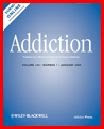
A proposal that has circulated in Harrisburg for years is divesting, selling, or privatizing Pennsylvania’s state-owned liquor stores. This discussion is particularly relevant today given the recent drop in Pennsylvania tax collections and long term taxpayer obligations. Geoffrey Segal and Geoffrey Underwood of the Reason Foundation estimate that Pennsylvania could raise $1.7 billion from the sale of its wholesale and retail liquor stores. While such a sale would represent only a onetime cash inflow, Nathan Benefield of the Commonwealth Foundation estimates that Pennsylvania would continue to take in close to $350 million annually in alcohol sales tax.
What gives many pause is the social impact of privatization. Myriad comparisons of privatized markets to state-controlled markets suggest that there are unquestionable advantages to privatization. Of concern are the possible disadvantages. Liquor control proponents maintain that, because the state can directly limit the times and locations at which alcohol can be purchased, and because state stores are not profit driven like private firms, privatization would result in increased alcohol consumption and problems associated with alcohol consumption, such as impaired driving.
A comparison of states with varying degrees of privatization in the retail and wholesale markets for alcohol over the period 1970 through 2006 suggests that privatization is associated neither with increased alcohol consumption nor increased traffic fatalities involving impaired drivers.
Read Full Report (PDF)































 age 20, and through face-to-face followup interviews
age 20, and through face-to-face followup interviews